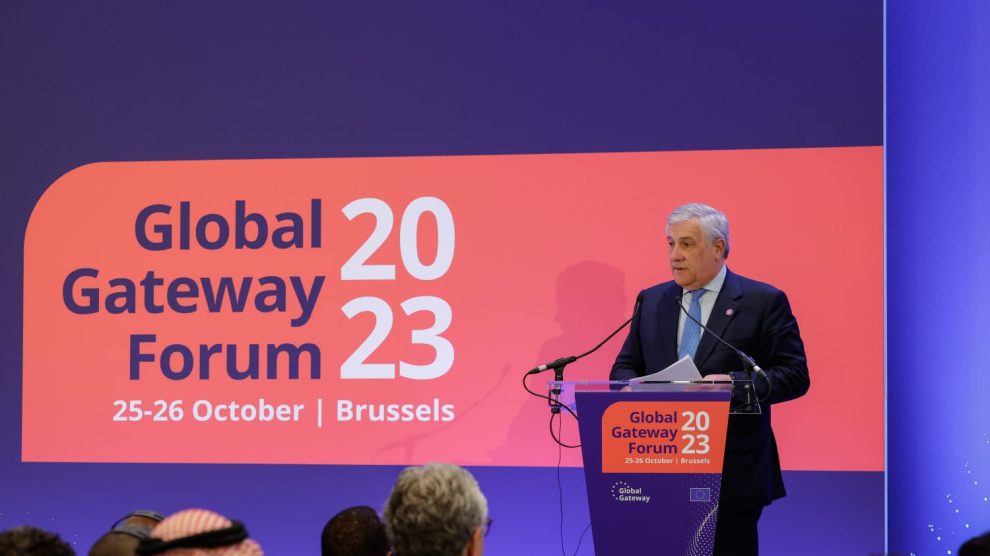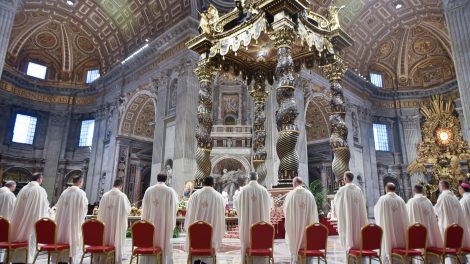The Global Gateway revolution. On Thursday, Italian Foreign Minister Antonio Tajani took part in the Global Gateway Forum in Brussels, where stakeholders, leaders and businesspeople have been fleshing out the European Union’s new external action initiative meant, among other things, to counter China’s Belt and Road Initiative. The two-day event was designed to woo Global South countries to the tune of €300 billion in investments – infrastructure, digital, climate projects –, half of which is earmarked for African countries.
- “Global Gateway means supporting the strategic importance of connectivity infrastructure. It means ensuring a favourable business environment for companies. It means mobilising, at EU level, investments for growth, welfare and development, especially in Africa,” summed up FM Tajani in an X post.
Italy is all in. Speaking at the Forum, FM Tajani explained that Rome wholeheartedly supports the project – which he called “an important tool for the affirmation of the EU as a global geopolitical actor.” He then took note of the many partner countries that took part in the Forum, noting it confirms their interest in this new instrument and “encourages” Italy, as incoming G-7 President country, has promised to “work for the development of synergies between the two areas.”
- Those are “address[ing] global challenges by boosting sustainable and quality investment in connectivity infrastructure” and “promot[ing] the strategic autonomy of the EU, strengthening the Union’s and its partners’ resilience in the face of ever new threats to our security” at the same time, he explained.
From words to implementation. The minister then emphasised the role of the private sector as “crucial to the success” of the Global Gateway, noting it is therefore “crucial” to offer economic operators and partners “a favourable environment for cooperation and trade. We must ensure full consistency between internal policies and our external projection strategy so that the two are mutually reinforcing, increasing our attractiveness and global competitiveness.”
- Africa holds a “strategic” role, he added, as a continent “with which Italy wants to dialogue and collaborate with a new approach based on the establishment of equal and mutually beneficial partnerships.”
- That includes uniting Europe’s (and Italy’s) industrial prowess with Africa’s wealth of resources: “we must unite these characteristics, favouring the development of African countries,” said FM Tajni, noting that “investments in training, research and human capital, real intangible infrastructures that will help us promote our own and our partners’ innovation, growth and competitiveness,” is “fundamental.”
Sounds familiar? It’s because all these ideas are the building blocks of Italy’s “Mattei Plan” for Africa, which is essentially Italy’s smaller-scale Global Gateway initiative. The project, set to be unveiled in early 2024 at the Italy-Africa Summit, is now being written along with select African countries. And it will also leverage Italy’s industrial presence and excellent ties in the continent.
- Italian major Eni is an example: as the African continent’s biggest oil and gas operator, it’s now investing in new energy projects in countries like the Republic of Congo and Mozambique to promote their nascent LNG export industry.
- In parallel, Sparkle – the global operator of Italian telco titan TIM Group, and the only Italian company to sit in the Global Gateway Advisory Group – has been working to wire African nations and the global high-speed internet backbone.





